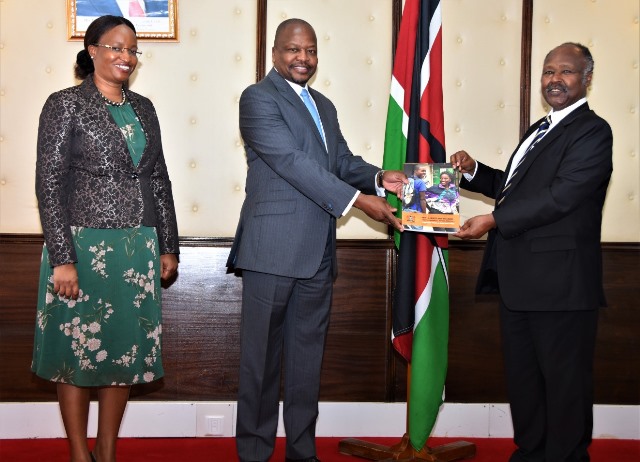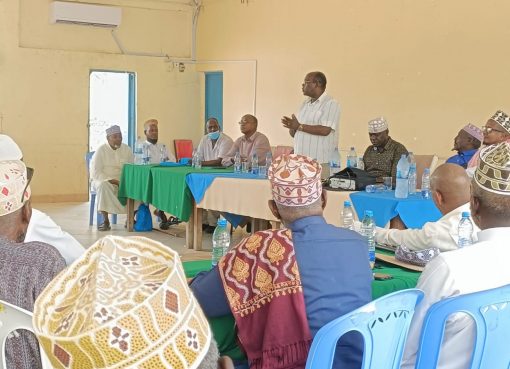Depression has become a common phenomenon and it affects persons from all walks of life and ages, Kenyans, particularly employers and institutions of learning are urged to invest more time and resources in monitoring and facilitating the mental wellbeing of their charges.
Back in 2019, President Uhuru Kenyatta directed the Ministry of Health in consultation with County Governments, Ministries of Education, Labor and Social Protection and Public Service, Youth and Gender Affairs, to formulate an appropriate policy response.
In a Cabinet directive in November the same year, mental health was given a further boost with the decision to form a Taskforce, a first of its kind in the country, to, among other things, study the causes of the increasing burden due to mental disorders.
The World Health Organization (WHO), defines mental health as a state of wellbeing in which individuals realize their own potential/abilities, can cope with the normal stresses of life, can work productively and fruitfully and are able to contribute positively to their community.
The WHO Global Mental Health Action Plan 2013-2020, portrays mental health as a key determinant, to the overall health and socio-economic development, that influences a variety of outcomes for individuals and communities, such as healthier lifestyles; better physical health; improved family relationships; social cohesion and engagements, and improved quality of life.
In retrospect, the Ministry of Health Cabinet Secretary (CS), Mutahi Kagwe, noted that mental illnesses are largely due to interplay and pathways of multiple factors including; biological, psychological, social, and environmental.
“The resultant mental health conditions contribute to individuals, families and communities, increased healthcare costs, socioeconomic losses, marginalization and other forms of vulnerability,” he said.
The Kenya Mental Health Policy (2015-2030), Kagwe noted, envisions a nation where mental health is valued and promoted, mental health conditions are prevented and persons affected by mental health conditions are treated without stigmatization and discrimination.
He added that the Mental Health Policy, gives a roadmap for securing reforms and building strong mental health systems, with the ultimate goal of attaining the highest standard of mental health in Kenya.
Kagwe noted that the Action Plan will operationalize Mental Health Policy’s objective that include: to Strengthen Effective Leadership and Governance for Mental Health, Ensure Access to Comprehensive, Integrated and High Quality Mental Health Care Services at all Levels of Healthcare; To Implement Promotive and Preventive Mental Health Strategies and Strengthen Mental Health Systems.
The CS said there is overwhelming evidence on the returns on investment in mental health, citing the Lancet Study in 2016, which found benefit returns to the ratio of 1:5 for the overall health and economic benefits.
“I call upon all stakeholders, to commit and invest in these mental health strategic actions, to address mental disparities for a healthy nation and socioeconomic development,” he urged.
Meanwhile, the Chief Administrative Secretary (CAS) for Health, Dr Rashid Aman, urged stakeholders to change the suicide narrative and play a more active role in supporting the victims and the bereaved of suicide crisis through the creation and promotion of hope and compassion to make those in need from mental health problems comfortable in seeking help.
“Young people are at high risk of suicide due to heightened anxiety, indulging in drugs and alcohol and broken social relationships,” Dr Rashid said while citing suicide as the fourth leading cause of death between 15 to 29 year olds globally.
He said the Government through the Taskforce, can accomplish this preventive action, through activities geared towards environmental control of risk factors and means, early identification and effective treatment of people with mental and substance use disorders, as well as responsible reporting of mental health problems by the media.
The Report from the Taskforce recommends three broad categories, to enable the Action Plan including administrative, legislative, adequate budgetary allocations and the criminal justice system changes.
These changes require additional supply of drugs, proposed set of legislative changes, and provision of adequate budgetary allocations to eliminate dehumanizing facilities, through adherence to WHO guidelines, raising of funds for mental health and additional taxation for those sectors, that contribute to the increase of mental health burden, such as alcohol manufacturers and the gambling industry.
Kenyans, on the other hand, were not left behind when they voiced their grievances on mental health issues to the Building Bridges Initiative (BBI) Taskforce.
One of the key recommendations of the BBI, is the creation of a body to monitor and report to Parliament, the state of the mental health and wellbeing of the people of Kenya.
The Mental Health Taskforce Co-chair, Dr Frank Njenga, in support of this proposal by the BBI, emphasized that the family unit, is the building block of the nation.
“Mental ill health is tearing families apart, as spouses turn against each other, as terrified offspring witness the violence, which they will in turn visit on their spouses and children in the next generation,” Dr Njenga observed.
The Taskforce noted the deplorable state of mental health facilities and the extent and consequences of the stigma and discrimination, found in all sectors of the Kenyan society.
Further, seeing the clarity of poor mental health as a threat to national development, the government taskforce moved with speed to slay the monster that has grown out of poor public financing and policy.
However, after the President’s directive to establish an Action Plan, Kenyans are glad that the government at last, seemed aware of the devastating problems relating to mental health they faced and wanted immediate and effective solutions.
The Government, in a move to emulate the response to the HIV/ AIDS outbreak, which is a similar health crisis with a history of success, will strive to mobilize national and international resources that in the end will save the lives of millions of Kenyans, from all the treatable mental disorders.
The Ministry of Health has called upon all the stakeholders and partners, for future engagements with the goal of implementing the Action Plan by the year 2025, regarding their investment and collaboration as of paramount importance, in realizing this goal.
By Michael Omondi




